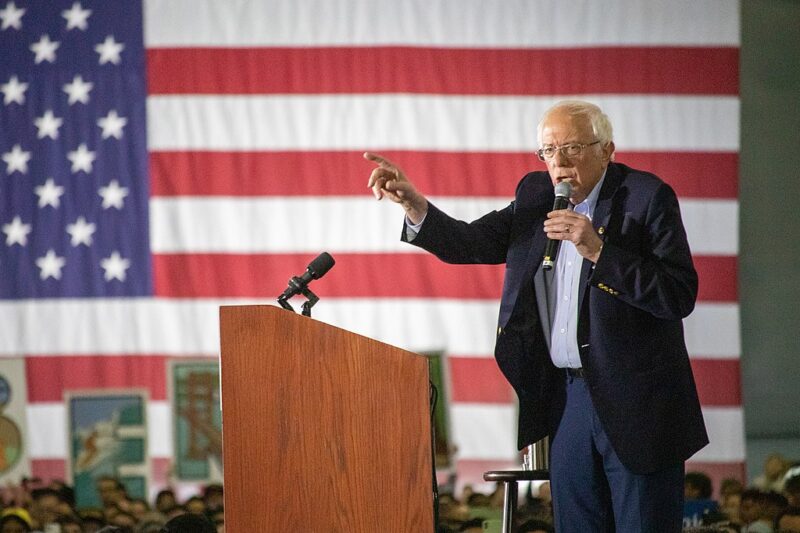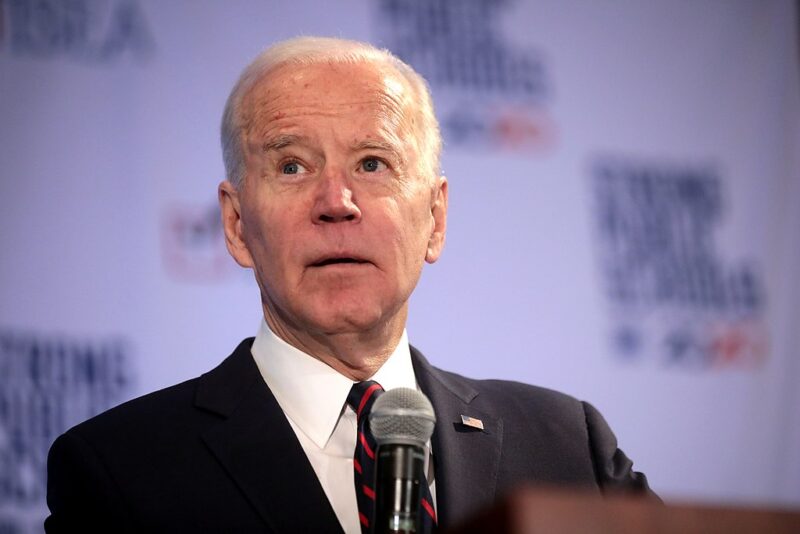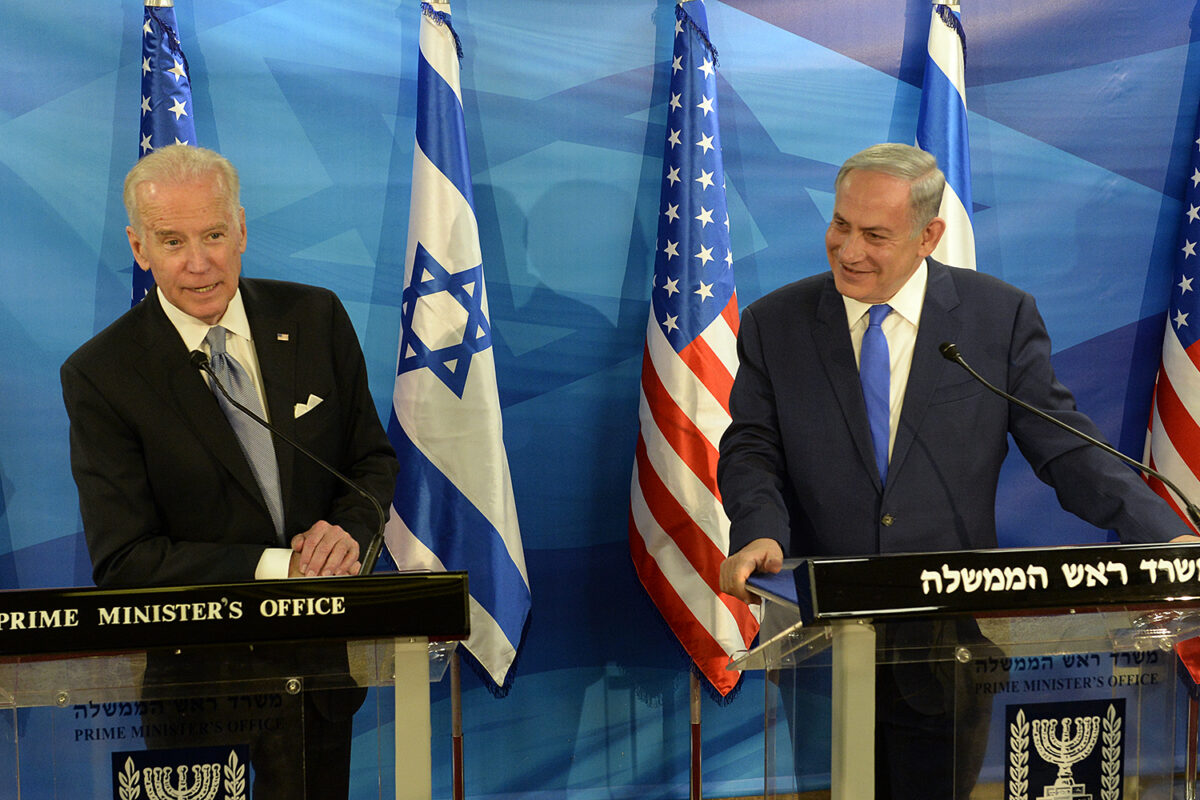The Democratic Party’s 80-page platform on foreign and domestic policy devotes only three paragraphs to Israel, a major U.S. ally. But their inclusion in the official party program received final approval only after an impassioned debate pitting progressives against mainstream Democrats at their national convention, which ended yesterday in Milwaukee.
The committee that produced the official draft tried to satisfy both wings, but the staunchly pro-Israel faction, supported by the party’s presidential nominee, Joe Biden, prevailed.
Biden rejected two key demands of the progressives, whose left-of-center positions were embraced by Senator Bernie Sanders. His bid for the party’s nomination was handily quashed by Biden, the middle-of-the-road candidate who served as President Barack Obama’s vice-president.

The loaded word “occupation,” a reference to Israel’s military rule of the West Bank, was deleted from the platform, in line with a request from moderate Democrats and the conservative-leaning American Israel Public Affairs Committee (AIPAC).
And a proposal to restrict U.S. military aid to Israel in the event of Israel’s annexation of parts of the West Bank was rebuffed. The platform endorsed Israel’s annual $3.5 billion in U.S. assistance.
The progressives, however, made some gains.
James Zogby, a Democrat and the founder and president of the Arab American Institute, believes the party’s platform this year was friendlier to pro-Palestinian activists than in the past. He described it as a “a major improvement” over previous platforms.
For the first time in its history, the Democrats explicitly endorsed Palestinian political rights within the framework of a two-state solution, while reaffirming support for Israel’s security.
The Democrats’ plank was supported by J Street, a Jewish lobbying organization to the left of AIPAC, and by a group of 27 dovish former Israeli diplomats and members of parliament who, in a letter on July 25, criticized Israel’s occupation and endorsed the formation of “a sovereign Palestinian state alongside Israel with Jerusalem as a shared capital.”
Democrats expressed opposition to Israel’s expansion of settlements in the West Bank and came out against unilateral annexation, a controversial plan that Israeli Prime Minister Benjamin Netanyahu suspended on August 13 so that Israel’s historic agreement to normalize relations with the United Arab Emirates could be advanced.
While the platform blasted the Boycott, Divestment and Boycott (BDS) campaign against Israel, it endorsed a new provision supporting “the constitutional right of our citizens to free speech.” In other words, left-wing Democrats are now free to advocate for BDS.
In the runup to the convention, progressives succeeded in winning a few victories on the campaign trail.
Two of the party’s most visible pro-Palestinian figures, Ilhan Omar (Minnesota) and Rashida Tlaib (Michigan), easily won their primaries.
Jamaal Bowman, a progressive, defeated Eliot Engel (New York), a pro-Israel politician who chaired the House Foreign Affairs Committee, in another primary.
In the U.S. Senate, 19 Democrats wrote a letter to Netanyahu warning him that annexation of the Jordan Valley would “fray” U.S. ties with Israel.
Sanders’ former Jewish outreach advisor, Joel Rubin, said that while the platform contained “strong progressives priorities,” it was generally “very reflective” of Biden’s pro-Israel position. In short, it was strongly supportive of the United States’ strategic alliance with Israel and its commitment to Israel’s security.
Biden’s pro-Israel credentials are unassailable, even judging by one small incident.

Linda Sarsour, a Palestinian American BDS supporter who has been accused of antisemitism, briefly appeared at a Democratic convention meeting. When the news got out, Biden released a special statement condemning Sarsour.
“Joe Biden has been a strong supporter of Israel and a vehement opponent of antisemitism his entire life, and he obviously condemns her views and opposes BDS, as does the Democratic platform,” his spokesman said in no uncertain terms.
If elected, Biden and his vice-presidential pick, Kamala Harris, will vigorously support a two-state solution and consistently denounce annexation.
In all probability, he will tacitly accept President Donald Trump’s out-of-the-box decisions to move the U.S. embassy in Tel Aviv to Jerusalem and to recognize Israel’s sovereignty over the Golan Heights.

Biden will probably chart a new course on Iran. He backed the 2015 Iran nuclear agreement, from which President Donald Trump withdrew in 2018 and which Netanyahu lambasted, and continues to believe it was useful in freezing Iran’s nuclear program and preventing a war between Israel and Iran.
On his website, Biden contends that the accord successfully prevented Iran from building a nuclear arsenal. He says he would return to the accord while “more effectively pushing back against” Iran’s “destabilizing activities” in the Middle East.
Biden maintains good relations with Netanyahu, despite their disagreements on major issues like Iran and Israeli settlements and despite an unpleasant incident that marred one of his last official trips to Israel in 2010.
Obama dispatched Biden to Israel a decade ago to break a diplomatic impasse between the Israeli government and the Palestinian Authority. As Biden visited Yad Vashem to honor the victims of the Holocaust, an Israeli government agency, the district planning commission, announced that 1,600 housing units in East Jerusalem would be constructed in East Jerusalem, which the Palestinians claim as their future capital.
The announcement was regarded as a slap in the face by the Obama administration. The then U.S. Secretary of State, Hillary Clinton, advised Biden to cut short his visit, but Obama decided that he should carry on.
Biden soldiered on and retained his cool, but the incident damaged Obama’s relationship with Netanyahu.
One can assume that Netanyahu will tread very carefully should Biden succeed Trump, who’s widely regarded as one of the most pro-Israel presidents in history. Under a Biden presidency, Netanyahu would have to shelve annexation indefinitely.
